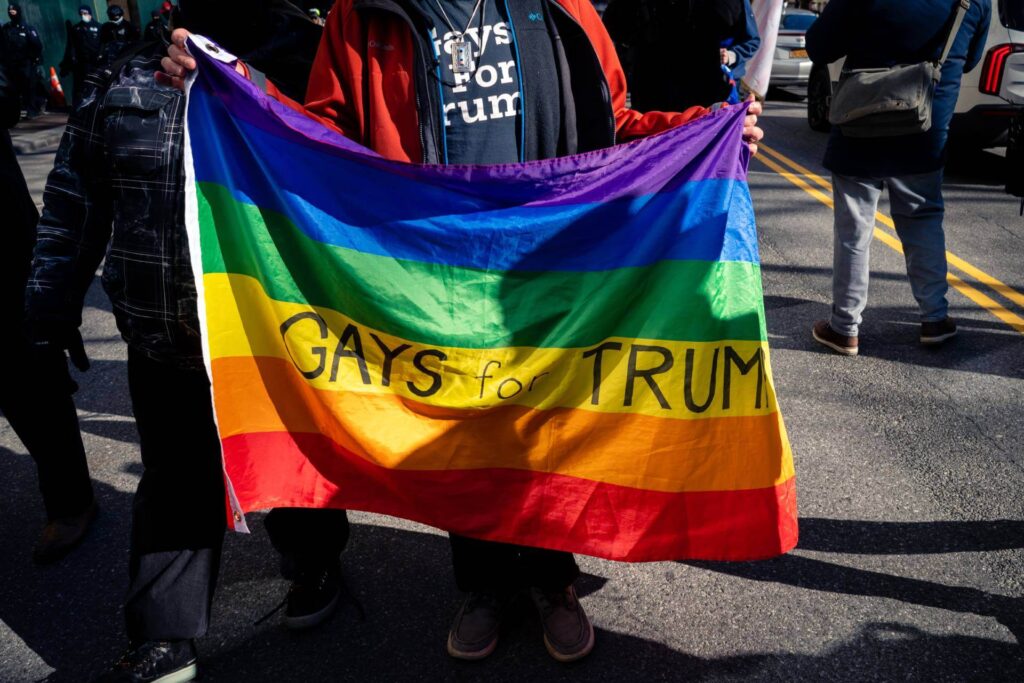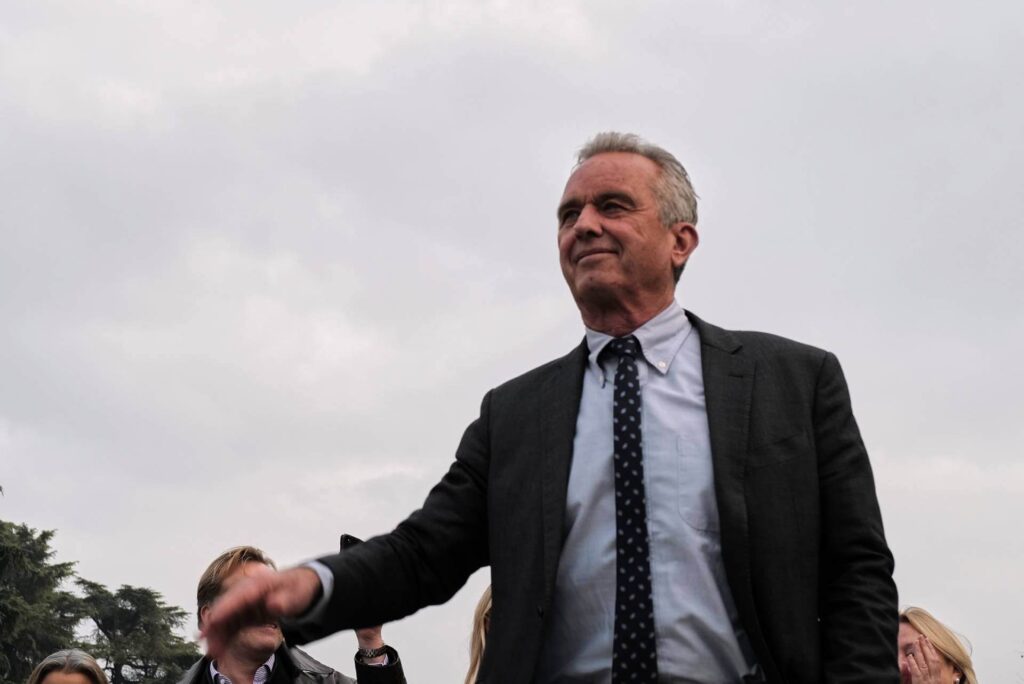On Novermber 9, 2023, Senator Joe Manchin announced his decision not to pursue re-election to his West Virginia Senate seat. Recent polling indicated that he trailed his Republican opponent by an ever-increasing margin, and New York magazine columnist Ed Kilgore described Manchin as the most vulnerable Democrat in the Senate.
Despite Manchin’s present bad polling, it is truly remarkable that he was able to maintain a high elected office for over two decades. He was West Virginia’s secretary of state (2001–2005), its governor (2005–2010) and finally one of its two senators (2010–2025). This was no small feat in a state that University of Virginia researchers have called the most “demographically friendly” towards the Republican Party in the nation.
Unfortunately, as Manchin has done relatively frequently in recent years, he seized the opportunity to flirt with a potential presidential run in 2024. Should Senator Manchin enter the Democratic primary, it would serve little purpose except to undermine the popularity of President Joe Biden with moderate, blue-collar or older members of the Democratic base. This would unnecessarily divide the Democratic Party before its fateful showdown with disgraced ex-President Donald Trump.
Manchin is one of the US’ least popular senators. A foolish primary run would almost certainly result in a victory for Joe Biden after unnecessarily dividing the party. Even worse, if Manchin did manage to win, he would likely lose against Trump in the general election. It would be exceedingly selfish for Manchin to run. He would be prioritizing his own ego over the survival of US democracy.
Joe Manchin can be a valuable asset in reaching out to party activists
However, there is another way, a better way, that Manchin can have an impact on the 2024 election.
President Biden has quietly been working to re-invigorate and strengthen the norms upon which our democratic experiment rests, particularly the norm of mutual toleration, through his genuine efforts at bipartisan cooperation. Yet, despite President Biden’s efforts, his influence over the increased radicalization of either party is extremely limited, because he cannot interfere with internal party processes.
Across the United States, both major political parties have established extensive bureaucratic apparatuses. Each state has its unique local party, loosely tied to the others by staffers and political strategists. Beneath each state party there are typically county-level organizations and often city-, town- and district-level organizations as well., Each comes complete with its own eclectic group of consultants, staffers, and volunteers. However, as one travels lower on the totem pole of the party apparatuses, politics becomes less of a specialty, in which experience and evidence-based analysis are highly valued, and more of a hobby in which emotions, passions and hatreds reign supreme. Legitimate experience and education become increasingly rare.
These local parties are the source of the most political extremism because prejudices thrive among the uneducated and those in isolated communities — i.e., those without opportunities to travel and become exposed to different peoples, cultures and worldviews. These party activists are short on experience and long on zeal, and they often show no compunction about abusing others. They are behind the GOP’s mad dash toward the fringe ideological right, as well as the ludicrous censuring of moderate, sensible and liberal Republicans such as Liz Cheney, Mitch McConnell and Tony Gonzales.
In Michigan, a key swing state, there were at least physical altercations between polarized elements of the local GOP this year, one in April and a second in July. Police officers had to be called to both incidents. In February, extremists in the Michigan GOP placed men with guns outside of a county-level GOP meeting to prevent moderate Republican delegates from entering and participating in the political process. Political violence is one of the most harrowing indicators of the moribundity of a political community. It is the harbinger of the collapse of functioning democratic institutions or democratic governance as we know them.
Support for this sort of political violence is on the rise. What’s more, violence has become legitimized due to the lack of consequences for its perpetrators. Across the nation, political figures who participated in the January 6th terrorist attacks upon our nation’s Capitol are running for elected office, or in some cases still hold office (including a politician in my own hometown).
Despite the fact these local party organizations pose an outsized threat to our democracy, it is exactly these types of systems over which President Biden can exercise the least influence. Fortunately, this is the area in which a figure like Manchin can continue to serve his nation, should he so choose. He has proved his mettle by securing several tough victories in the Republican enclave of West Virginia. Additionally, Manchin has proven that he can generate strong cross-party appeal, even if only fleetingly. Thus, he has the prestige and experience necessary to influence the direction of state and local parties, to encourage the nominations of moderate candidates and, when necessary, to assist in operating aggressive primary battles to elect those candidates.
This is especially the case since House Speaker Kevin McCarthy announced his early departure from the House of Representatives, and speculation abounds that he might attempt to exercise his influence over the GOP in just this same way — he was the Republican Party’s most effective fundraiser, after all.
Moderate caucuses within Congress have experienced a precipitous decline in membership and influence, as politics have grown more polarized. Yet, these caucuses — the Blue Dog Coalition, the Tuesday Group and the Republican Main Street Caucus — once accounted for a significant portion of the House of Representatives’ membership. They were critical to representing the centrist interests of the average American and for sustaining functioning democracy. Manchin may be able to restore the essential bipartisan nature of that body; at least, he could make a valiant effort.
There are two paths that lie before the retiring West Virginia senator. On one, he will go down in history as a courageous defender of the “American Experiment” in faith, freedom, liberalism and democracy. On the other path, Manchin will be recorded in the next generation’s history books as a selfish, delusional has-been who aided in the destruction of the United States’ ideals by unnecessarily attacking President Joe Biden and delivering the country into the hands of a despotic, disgraced, egomaniacal former president … that is, if Manchin’s name is recorded at all.
This choice is entirely Manchin’s. The world should look on with trepidation, because the choice of this one man will not just have implications for his personal legacy, but for the nature of the US democracy itself.
[Anton Schauble edited this piece.]
The views expressed in this article are the author’s own and do not necessarily reflect Fair Observer’s editorial policy.
The post Senator Joe Manchin: A Profile in Courage or Cowardice? appeared first on Fair Observer.
from World News - Independent, Nonprofit Media https://ift.tt/fb6lezo https://ift.tt/QyPxzql






0 Comments
Online Latest Bangla News, Article - Sports, Crime, Entertainment, Business, Politics, Education, Opinion, Lifestyle, Photo, Video, Travel, National, World.
Emoji